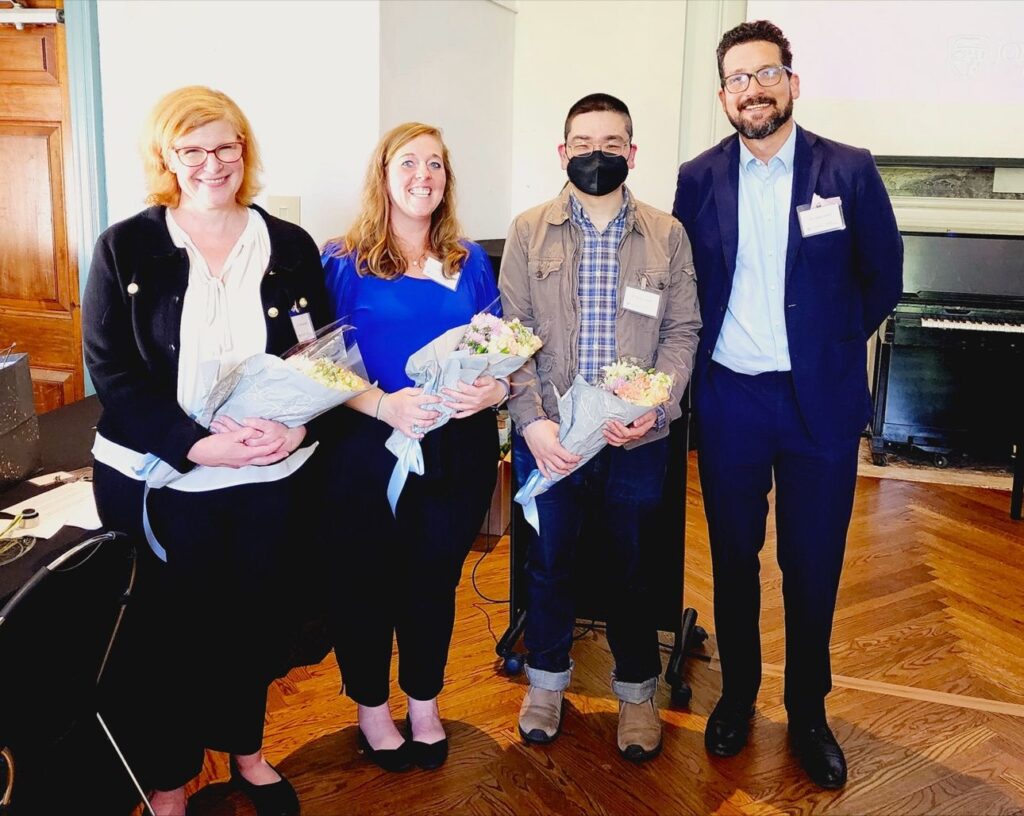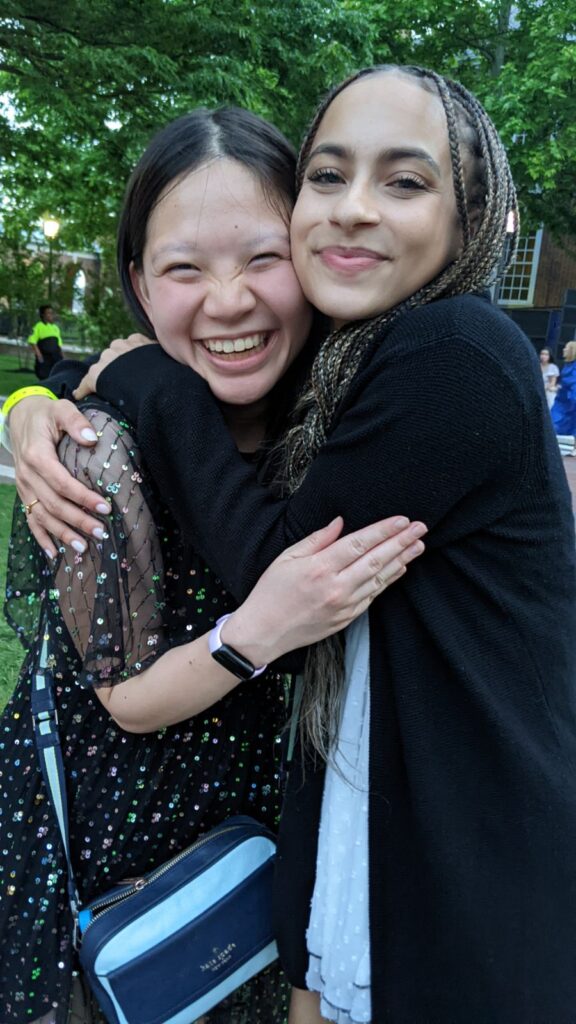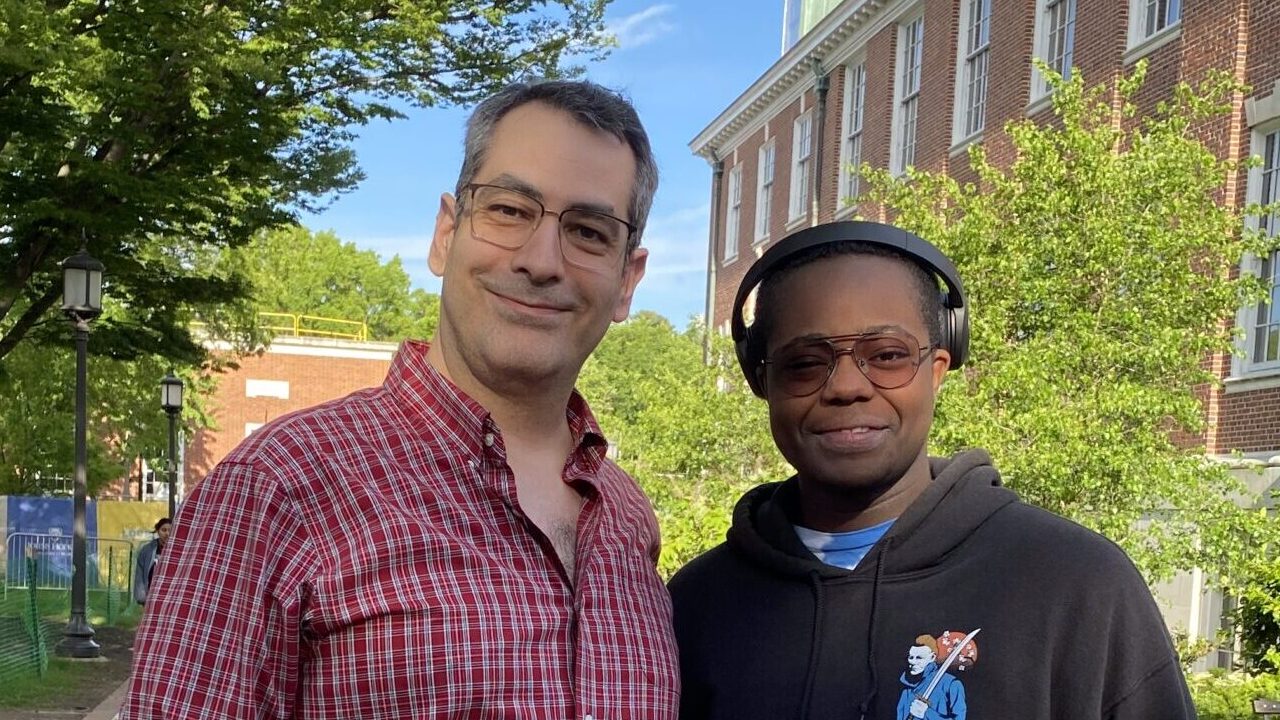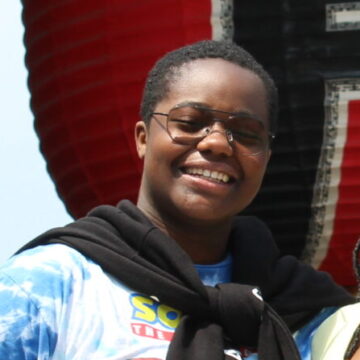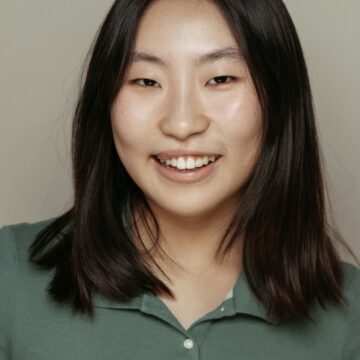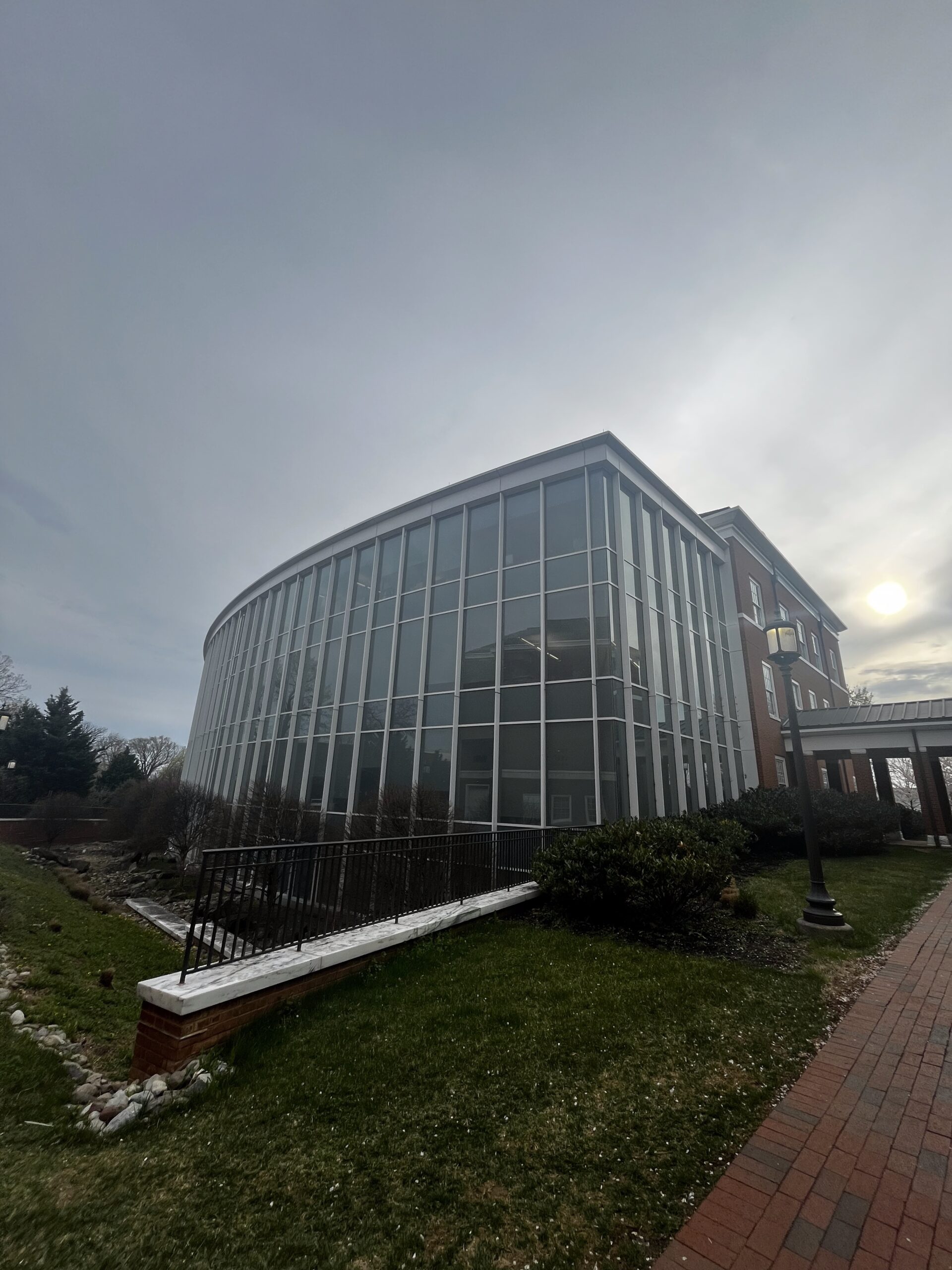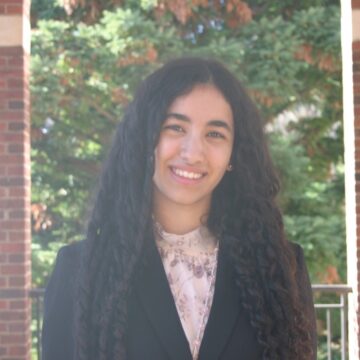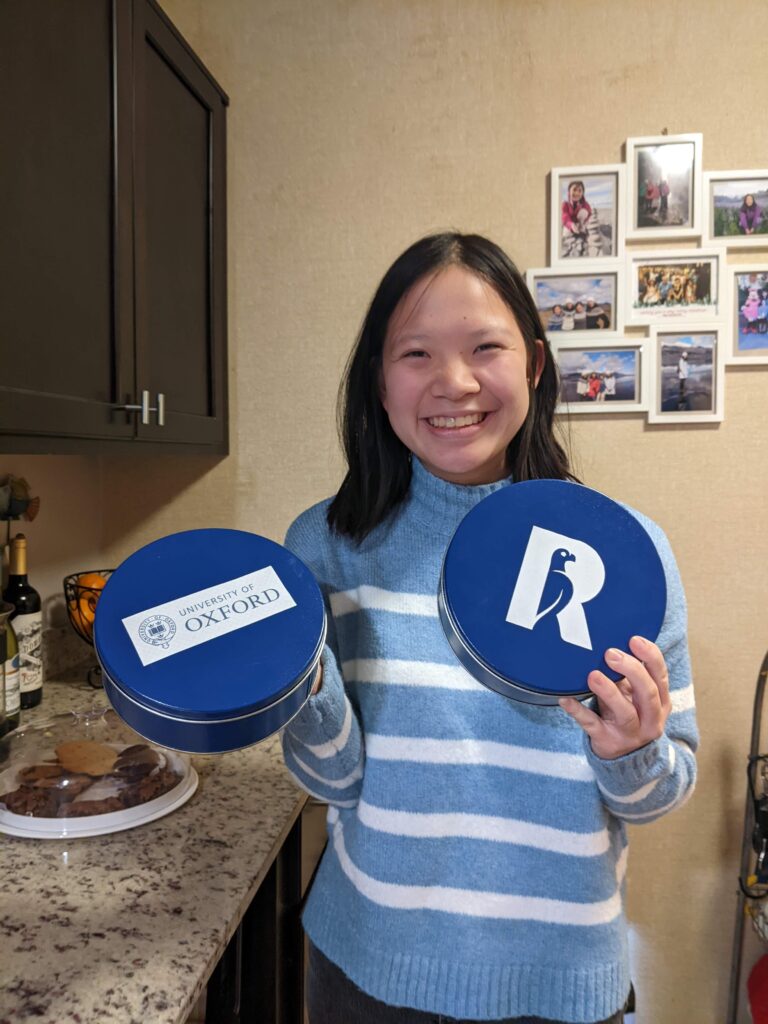
At Hopkins, I was involved with disability advocacy and research. This was informed by my own experiences growing up with hearing loss, and digital accessibility and disability advocacy knowledge from informal sources such as #DisabilityTwitter on X (formerly Twitter) and online LinkedIn learning courses. When looking at post-graduation options, I wanted a formal education in digital accessibility and disability advocacy through a master’s program in Europe. I chose Europe because they have made advances in disability rights and digital accessibility, and I wanted to learn how other countries serve people with disabilities in comparison to the United States. However, I couldn’t afford a master’s degree abroad, so I looked for funding sources and found the National Fellowships Program. This resource advises Hopkins students and alumni on applying to nationally competitive fellowships, scholarships, and grants, including the Rhodes and Truman Scholarships.
During my junior year, I applied unsuccessfully to the Truman Scholarship, a public service scholarship. My advisor Dr. Brent Fujioka (part of the National Fellowships Program) then encouraged me to apply for the Rhodes Scholarship (an award that covers 2–3 post-graduate years of funding at Oxford) because my intended master’s program for the Truman was at Oxford. He connected me with Dr. Kathleen Barry, the associate director of the fellowships program, and she became my advisor for the application process for the Rhodes Scholarship.
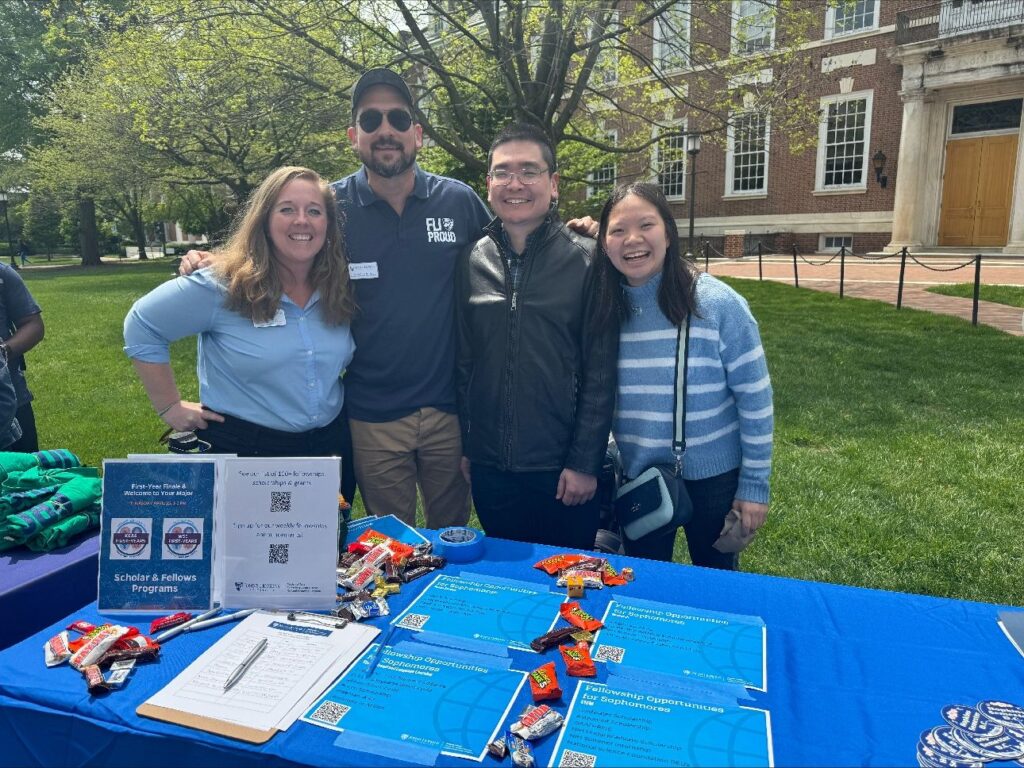
The application process for the Rhodes Scholarship was arduous. I had to obtain eight letters of recommendation. Throughout the process, I felt immense imposter syndrome. When reading the Rhodes Scholar biographies, they had aced their classes and been involved in impactful research and service throughout college. Meanwhile, I got a C+ in Orgo, flunked out of neuro, and could barely pipette a water droplet. I believed I didn’t have a shot at these huge scholarships and almost backed out of applying. Dr. Barry stepped in and reassured me that I had a chance. She reminded me I had excelled as a public health student, getting mostly A’s and won international awards in recognition of my disability advocacy. She reminded me that my recommenders spoke highly of me and the importance of my work. She explained to me that the selection committee looks holistically at the whole applicant as a changemaker, and my GPA was just one data point. Dr. Barry’s support pushed me to power through 15 drafts of essays for the Rhodes Scholarship throughout Summer 2023.
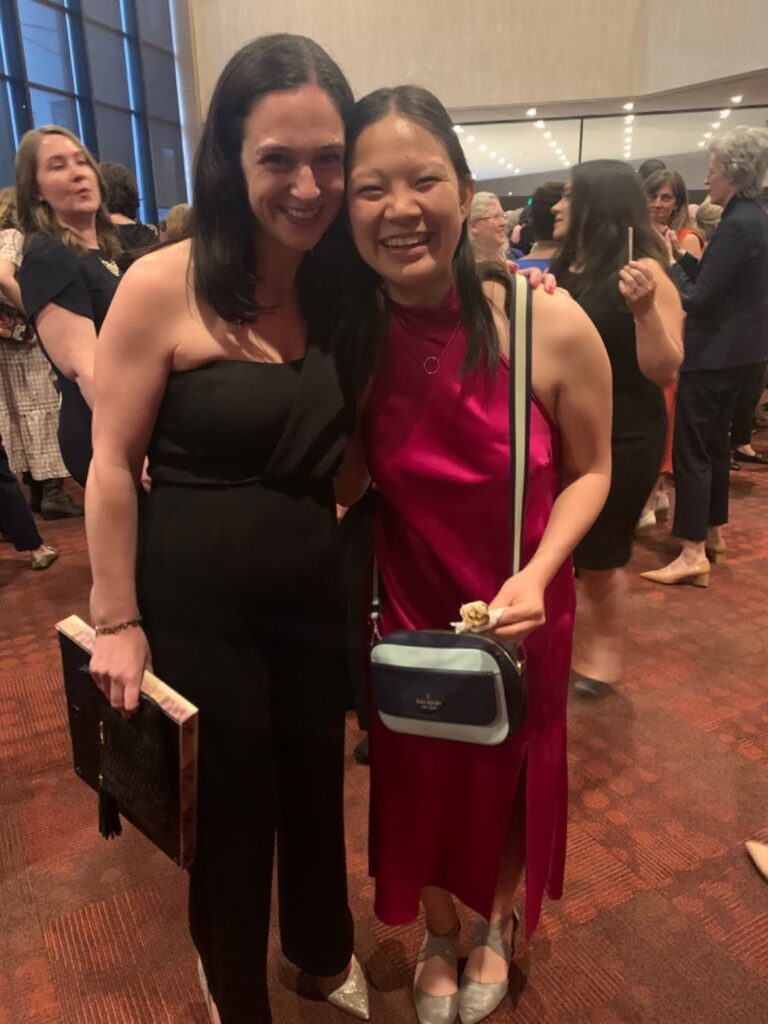
I submitted the application in September and heard back in October that I was a finalist for the Rhodes! I remember crying many happy tears in the Imagine Center—I had never believed it was possible. It was a whirlwind from there. Dr. Barry arranged practice interviews where Hopkins alumni and faculty grilled me with questions such as “Is the American healthcare system broken?” I stayed in touch with one alumni interviewer, Sarah David ’03. We actually met at the Top 100 Women of Maryland ceremony in May where she was an honoree, and I was the scholarship winner.
The interview preparation I went through with the National Fellowships Program was harder than my actual interview. During the interview weekend, I was nervous, but I was ready for anything the selection committee could ask me because of the preparation I had done. Dr. Barry stayed in touch with me via text as I poured out all my emotions via emoji. As I navigated the cocktail hour, I remembered all the etiquette rules they had taught me. When they announced the recipients in front of everyone (“Bachelor” rose style), in my moment of shock and joy I felt an immense gratefulness for the National Fellowships Program, Dr. Barry, and my family who had done so much to support me.

on them a day after winning the Rhodes
It is an honor to become a Rhodes Scholar, and I’m excited to pursue studies in digital health and policy during my time at Oxford. Besides winning the scholarship itself, the application process helped me explain the importance of digital accessibility and disability justice to a larger audience. It also introduced me to one of my closest friends (Cleo Blumenthal, a Rhodes finalist from Hopkins).
The application process was so rewarding in terms of personal and professional development. If you end up at Hopkins, check out this resource to see how they can support your journey!
This is not just a win for me—it’s a win for the National Fellowships Program at Hopkins, which unconditionally supported me through the application process. I never imagined I would win the Rhodes, but I do know I could not have gotten to where I am today without the support of the National Fellowships Program.
